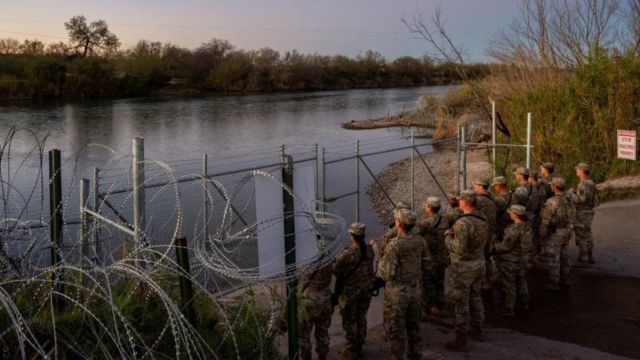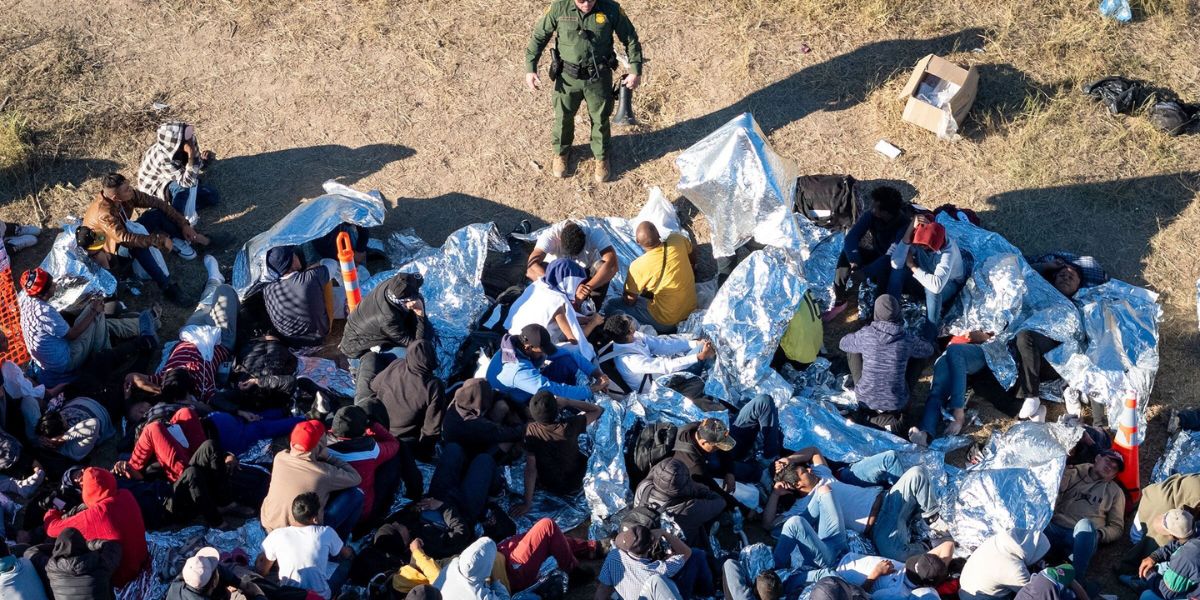At the US-Mexico border, authorities in Texas last week arrested 4,000 migrants on average every day. While this figure is up from earlier in the month, it is still less than what it was in December.
Authorities in Texas accused them of illegal trespassing. This was the first occasion since Texas seized control of the area at the US-Mexico border that migrants had been taken into custody.
Texas has been threatened with legal action by the Biden administration if it continues to obstruct the US Border Patrol’s access to a 2.5-mile section of the border. Texas officials, however, have refused to comply, arguing that they have a right to defend their boundaries.
The legal battle involving Texas and federal officials has made its way to the Supreme Court. Attorney General Ken Paxton of Texas, however, declared that his state would keep defending its borders and territory.
A noteworthy development on the US-Mexico border is that Texas authorities are aggressively detaining migrants who are trying to enter the country, which is a contentious practice.
This action has sparked contentious discussions about the ethical ramifications and wider ramifications for both migrants and the communities concerned. It was motivated by worries about border security and immigration laws.
Context of the Border Situation
For many years, the US-Mexico border has served as a focal point for immigration-related conversations and policy disputes. There is a steady influx of people into the area looking for safety or better prospects, which presents difficult problems for border enforcement organizations as well as the migrants themselves.

Authorities in Texas have come under heavy criticism for their recent decision to actively arrest migrants, which is a change from their past methods.
Enforcement Actions and Their Legal Consequences
Authorities in Texas are actively pursuing and apprehending people who are trying to enter the country without the required documentation as part of their enforcement tactics.
This method goes beyond conventional border enforcement, in which detentions were frequently followed by processing and, occasionally, release while legal actions were pending.
The new approach has legal ramifications that call into question human rights, due process, and compliance with international asylum regulations.
Effects on Refugees
There’s little doubt that the thousands of migrants trying to enter the US are impacted by the increased enforcement actions.
An already difficult journey becomes even more problematic due to the worry of being arrested.
As they negotiate the complicated dynamics of the border, migrants—many of whom are escaping violence, persecution, or economic hardship—now confront greater risks and uncertainty.
Fears Related to the Humanitarian Crisis
Critics contend that a humanitarian crisis may result from the stepped-up enforcement measures. Arresting migrants in the absence of enough infrastructure to manage the surge in numbers prompts worries about overcrowded prisons, finite resources, and possible breaches of fundamental human rights.
Supporters stress how crucial it is to protect immigrants’ well-being and dignity regardless of their immigration status.
Federal-State Relations and Policy Implications
The action taken by Texas authorities further complicates the already delicate relationship between the federal government and the state about immigration.
Federal authorities have traditionally had the primary authority over immigration policies.
The state’s choice to intervene on its own creates issues with the separation of powers, intergovernmental collaboration, and the possibility of competing policies.
Public Response and Political Conversation
Reactions to the detention of migrants at the US-Mexico border have been mixed, both among the general public and among decision-makers.
Citing concerns for national security, proponents of tighter border controls commend the efforts to reduce illicit entrance.
Opponents counter that the policies might make the situation worse, highlighting the need for comprehensive immigration reform that deals with the underlying issues and takes a sympathetic stance toward people who are fleeing.
In Summary
The choice made by Texas officials to aggressively detain migrants at the US-Mexico border is indicative of the continuing complexity surrounding US immigration laws.
The action has sparked discussions about how to strike a balance between humanitarian concerns and border security, which has ramifications for local communities, migrants, and the political system as a whole.
As the situation develops, it emphasizes how urgent it is to solve immigration issues using thorough, cooperative strategies that take humanitarian and security considerations into account intending to create a more just and efficient immigration system.




